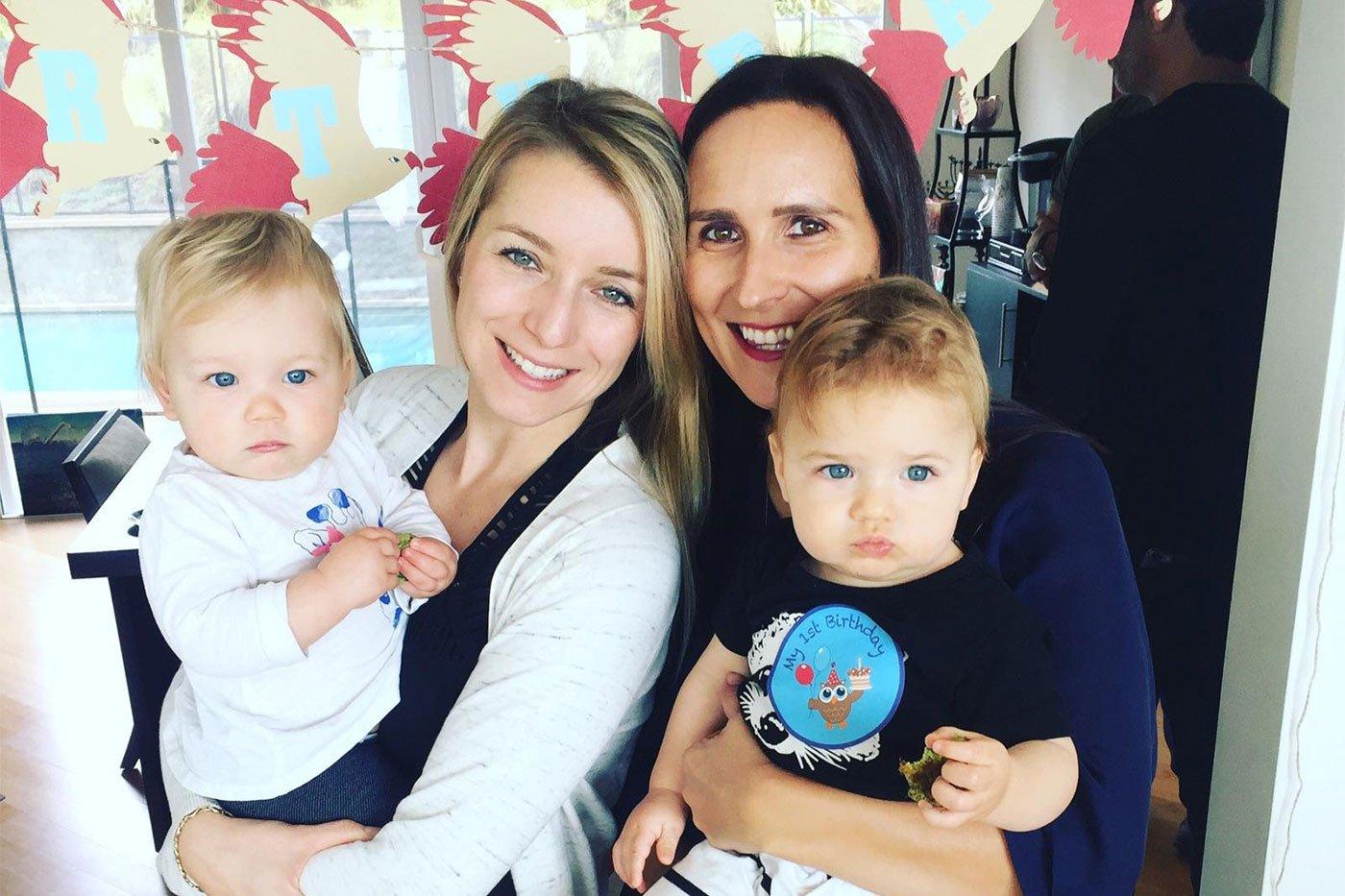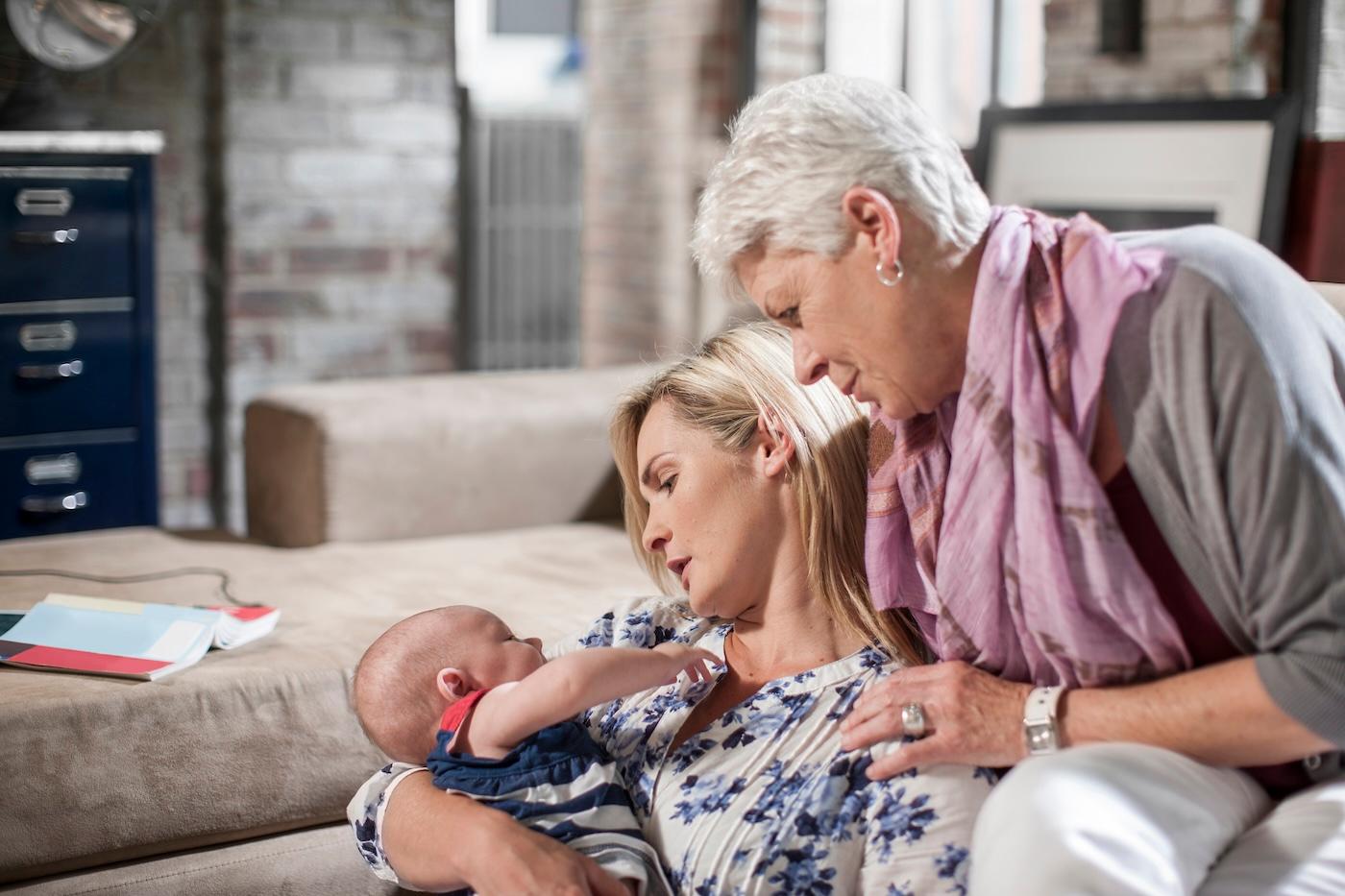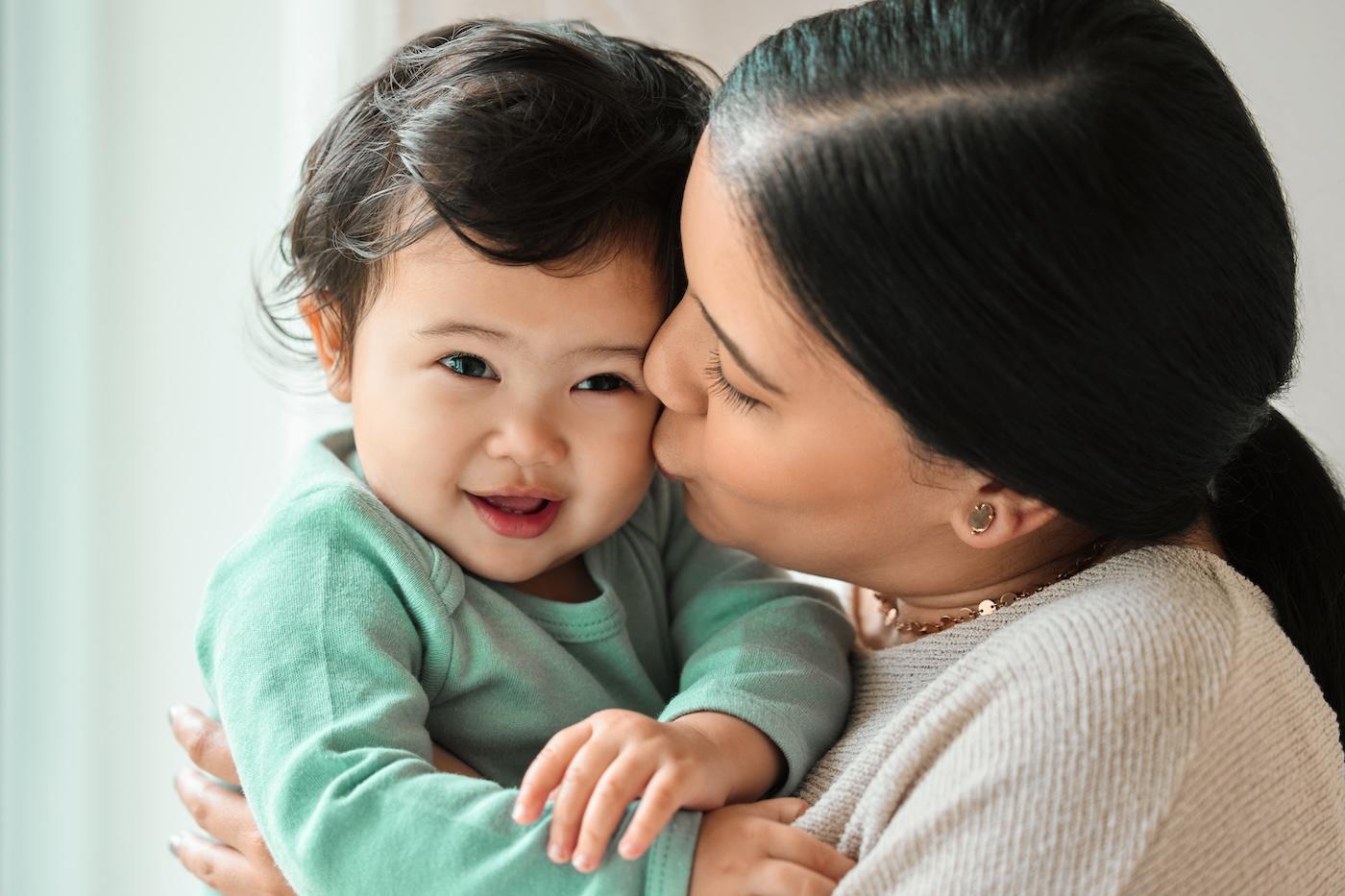PARENTS
Opinion Piece: How I Made My First Mum Friend
This mom shares how her greatest allies are the women around her.
Written by
Chessa Latifi Donaldson

I was five weeks postpartum, still struggling every time I tried to leave the house with my daughter. I had signed up for an infant massage class before she was born, expecting to bound in there with a content, sleeping infant and a handle on motherhood.
I was very wrong.
I was severely sleep-deprived and teetering on the edge of undiagnosed PPD, which manifested itself as blind rage toward anyone who dared breathe in my direction. I sat in that first infant massage class next to moms with babies all older than mine—moms that were back to wearing regular clothes and whose babies were sleeping much better than mine—a recipe for intense envy.
Dana sat next to me that first-class—her baby, only two weeks older than mine, was sleeping 12 hours straight every night. I glanced over at her long, skinny son and thought judgingly, “Maybe she should get up to feed him.” My daughter proceeded to cry for the entire class. The other babies cooed and smiled and gazed up at their moms. Dana’s skinny little boy was delightful. I felt defeated.
A few classes passed by. I usually arrived early, trying in vain to walk my daughter around so she’d fall asleep in the carrier or the stroller. I booked it out of there at the end of each class, too exhausted and worried about the endless crying on the car ride home to stick around and socialize. Going out was a chore. Staying in was a chore. We were nearly two months into this journey and I was under a deep cloud.
One day, I noticed Dana’s car parked in the lot when I arrived—my ears perked up. Dana was usually the one that rolled into class a few minutes late—what was she doing here?
At the end of class, she handed out a piece of paper and demanded everyone’s phone number and email.
“Who texts?” she asked. “I text a lot. I need people to text with.”
“I do,” I said.
I was up all night, every night, with an infant who refused to sleep. It was devastatingly lonely. I’d feel relief once the clock ticked to four in the morning, knowing that at least on the East Coast, people were stirring. I desperately needed relief from the isolation.
Our correspondence felt like a courtship. Dana was interested; I was unsure. She was aggressive—coming to class early knowing I’d be there, demanding contact information, asking questions about where I lived and where I worked and where I was from. She wanted a friend and wasn’t letting up.
I don’t remember our first message, but once we started, we didn’t stop. It turns out that despite a sleeping baby, Dana was in the same boat—we were both struggling with this transition and needed help.
We held each other’s hands through those early months and came out of the fog together—establishing ourselves as competent mothers first, and then reclaiming ourselves as women. Our text messages, phone calls, and visits spanned all hours. We reassured each other, comforted each other, led each other through the long nights and long days. Our text thread has never stopped in over three years, and our families know that if we pick up the phone, it’s for each other.
I walked into that massage class seeking a minor form of solace from those difficult first few months of motherhood. I didn’t expect to find my greatest source of compassion in the form of a woman with a skinny little son and an aggressive demand to provide my phone number.
In today’s world, women are expected to be able to do it all. We’re expected to handle screaming infants, challenging toddlers, demanding jobs, and complicated households with grace and skill. The reality is far, far messier, and our greatest allies are the women around us.
Disclaimer: The information on our site is NOT medical advice for any specific person or condition. It is only meant as general information. If you have any medical questions and concerns about your child or yourself, please contact your health provider. Breastmilk is the best source of nutrition for babies. It is important that, in preparation for and during breastfeeding, mothers eat a healthy, balanced diet. Combined breast- and bottle-feeding in the first weeks of life may reduce the supply of a mother's breastmilk and reversing the decision not to breastfeed is difficult. If you do decide to use infant formula, you should follow instructions carefully.
SHARE THIS ARTICLE
PARENT PICKS
Bestsellers



















